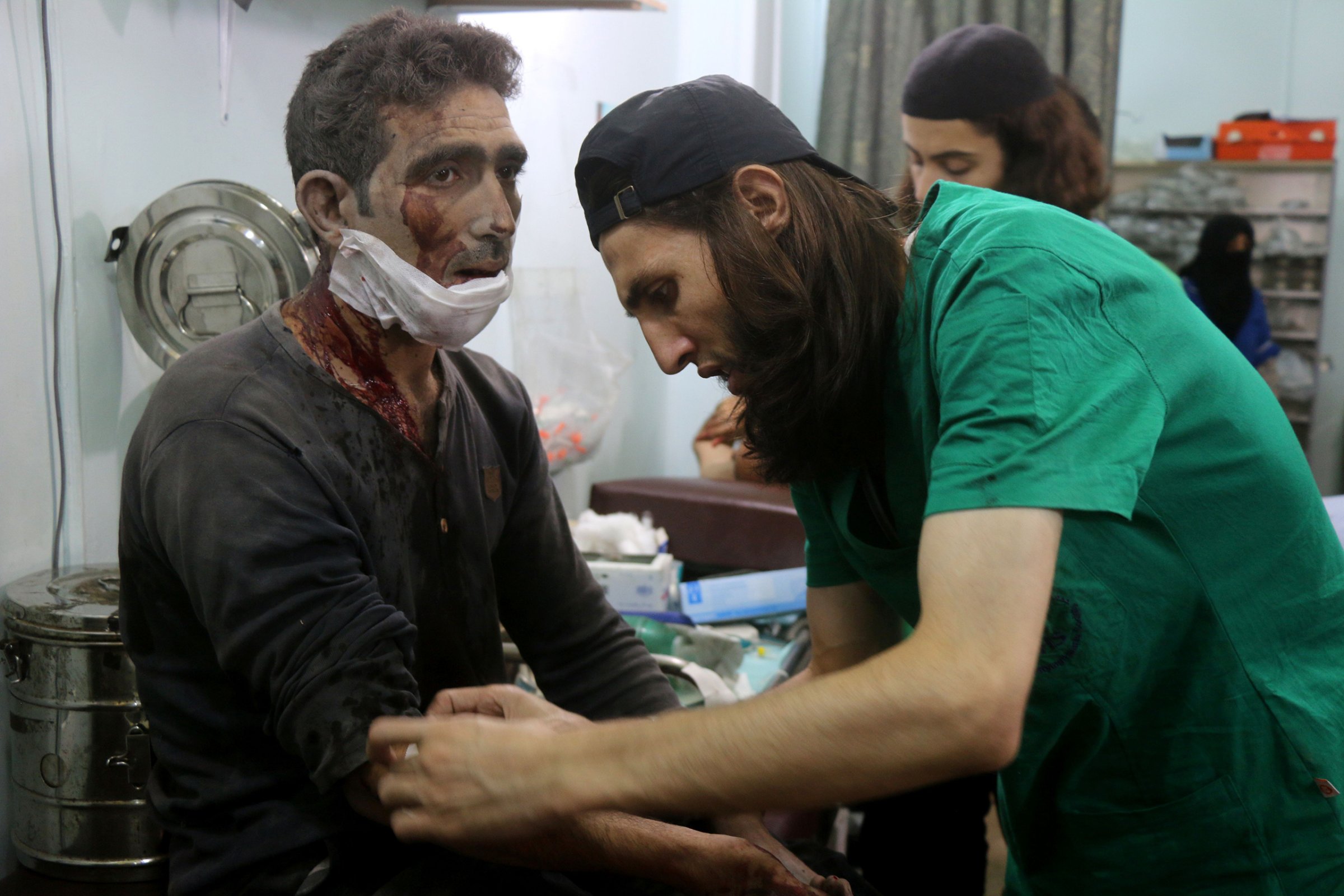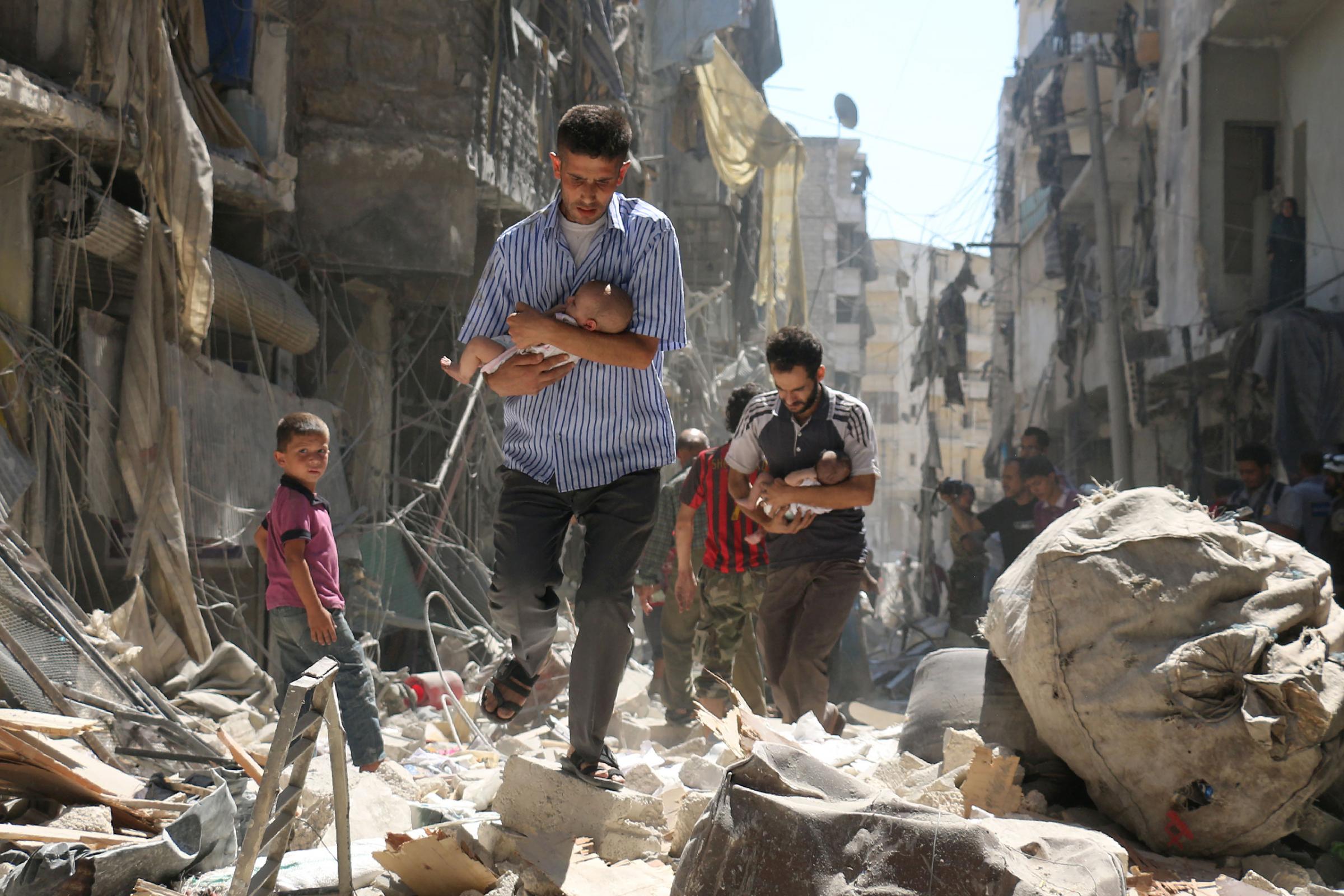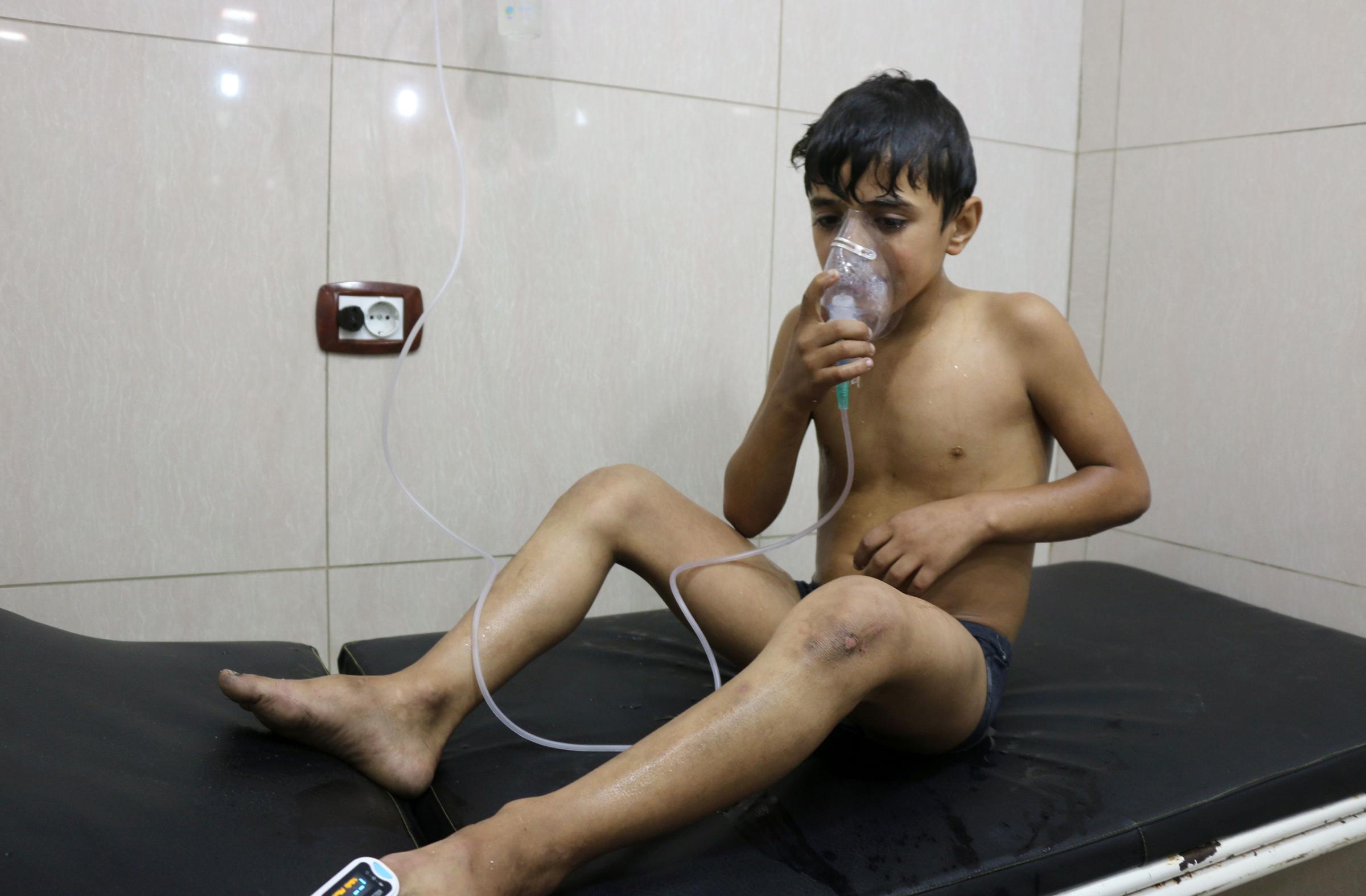
Zaher Sahloul, Farida Muslim, Samer Attar and Abdel Khalek are doctors; Abo Rajab and Baraa Omar are nurses; and Abdel Kafi is a teacher. Two other doctors contributed but asked to not be named for fear of their safety. They are all working in the rebel-held section of Aleppo, Syria
“What is Aleppo?” Gary Johnson, the U.S. libertarian presidential candidate asked during an interview last week. He looked genuinely dumbfounded when the MSNBC reporter mentioned our city. He later clarified that he thought it was an acronym.
We are a group of doctors, nurses and teachers who have lived through the last five years of hell in our beloved city, which has been called the most dangerous city in the world. We have been under siege for more than two months—300,000 of us including 85,000 children and 151,000 women. To us, Aleppo is everything. It is our city, our life and our destiny. Aleppo is our love.
Aleppo is a 7,000-year-old city where history and future meet. It is older than the languages used to write about it. All civilizations have met in our city. Aleppo is where the scent of Jasmine intertwines with the chirping of morning canaries in the narrow alleys of the old city. It is where the Silk Road ended. It has the longest bazaar in the world, and the best music in the Middle Eat. It is a World Heritage Center. It is the most diverse city in the Middle East, where Arabs, Kurds, Armenians, Bosnians, Albanians, Christians, Jews, Turkmen lived together for centuries.
Our city welcomed with open hearts those who fled their genocides, but right now the world is watching with indifference as we suffer the Holocaust of the 21st century.

Aleppo’s cuisine is among the best in the world, but right now we don’t have cooking gas or even running clean water to cook. We are running out of baby milk, fuel, medicine, bread, meat, fruit and vegetables. We don’t have electricity. Our city is constantly lit by fire and bombs, even phosphoric ones.
Our priority right now is how to survive another minute—and then another day. It is how to protect our children from the hell falling from the skies. Every day, it seems, there is a new massacre and there is a new list of people who were killed and injured. We can’t keep up with funerals. Many are waiting for death and wishing that it comes soon. We don’t want to see our children dying of starvation like the children of Madaya, Syria.
Every day we treat dozens of victims of Syrian President Bashar al-Assad’s barrel bombs and Russian President Vladimir Putin’s airstrikes. We have to amputate small legs and arms of children pulled from under the rubbles of their homes. Some make it; many don’t.
Every day we have to treat people in underground hospitals because our hospitals are targeted. Every day, we go to our work not knowing whether we will be going back to our family alive. We don’t know whether the next barrel bomb will hit our hospital, our home, our children’s school or the fruit market nearby. We are running out of coffins.
But we have not run out of our resilience, hope and determination to live in our city. We have not run out of our love for a good laugh, nice music and inspiring art.

Over the past five years, we have gotten used to the world watching us from a distance, looking at the videos and pictures of our injured children, peeking into our suffering—and then moving on. Many of our children’s pictures went viral. Remember Omran! He is one of tens of thousands of our children who don’t dream of what they want to be when they grow up, but of having a day pass without seeing a barrel bomb or a missile. They dream of not having to eat grass, tree leaves or cat meat like the children of Madaya. They dream of playing in playgrounds above ground, not in basements. They dream of sleeping in their beds, not in the bathroom, the most protected room in the house.
We are not surprised by Johnson’s ignorance of our city. Ignorance is a bliss, as they say. What is the benefit of knowing about Aleppo if you don’t do much about it? We are more surprised by the apathy of those who knew about what was going in Aleppo. President Obama and other world leaders knew about our suffering, but besides offering condemnations and pointing fingers, they have mostly stood idle while our children are bombed, starved and gassed. We’ve lost our faith in humanity.
To us, the right question to ask is not “What is Aleppo”; it is “What is America?” Is it a shining city on the hill? The champion of human rights and democracy? The beacon of freedom? The nation that rushed to fight and challenge evil in the World War II and Bosnia? Or is it another country, run by mediocre politicians, so consumed by its internal affairs and election rhetoric that makes it so oblivious to what is going on in the rest of the world?
Aleppo is 7,000-year-old beautiful and resilient city whose besieged children are being killed by barrel bombs and chlorine gas while the world looks on. Aleppo is a daily reminder of the world’s inhumanity.
More Must-Reads from TIME
- Why Trump’s Message Worked on Latino Men
- What Trump’s Win Could Mean for Housing
- The 100 Must-Read Books of 2024
- Sleep Doctors Share the 1 Tip That’s Changed Their Lives
- Column: Let’s Bring Back Romance
- What It’s Like to Have Long COVID As a Kid
- FX’s Say Nothing Is the Must-Watch Political Thriller of 2024
- Merle Bombardieri Is Helping People Make the Baby Decision
Contact us at letters@time.com